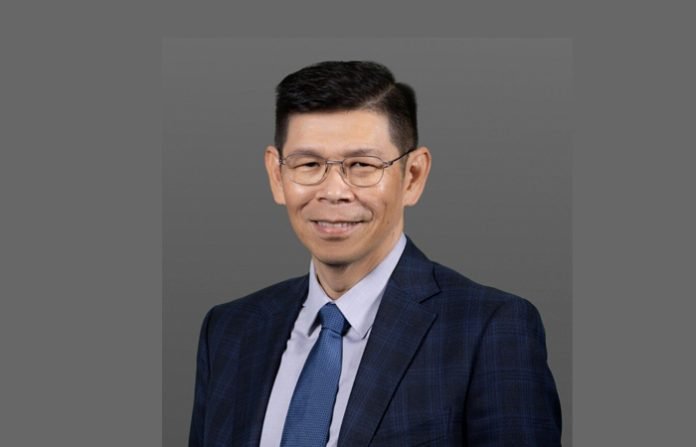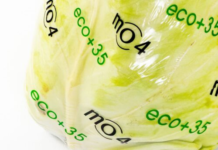The increased focus on the environment and climate has pushed companies harder to consider the sustainability of packaging and at the same time maintain its quality. Recycling technologies are critical components of the continuously improving process of transforming discarded plastic into new products. Advanced and mechanical recycling each have an important role in creating more efficient processes.
Speaking on the importance of the topic, Bambang Candra, Asia-Pacific commercial vice-president, of Dow packaging & specialty plastics told Packaging South Asia, “At Dow, we recognize that the world simultaneously needs more sustainable packaging options and less waste. Plastic waste is in large supply – but it is not being accessed. The gap between the downstream demand for circular plastics and the available supply is significant. The recycling of packaging waste, however, presents considerable logistical and operational challenges – with materials often ending up incinerated or buried along with general household waste.”
According to Candra, though about 54% of recycled waste comprises rigid plastics, there is significant room for flexible packaging to become more recyclable. “The industry must realize that plastics are simply too valuable to be thrown away. The 18 million metric tons of recycled plastic waste in 2022 alone generated a total gross product equivalent to CNY (Chinese Yuan) 105 billion (US$14.8 billion) in value. There is value in waste, and we are working to transform waste into circular and renewable solutions that contribute to sustainable packaging.”
Dow’s Packaging Innovation Awards has been a primary platform for the company to spotlight innovative packaging. For more than 30 years, the Packaging Innovation Awards have celebrated the most transformative packaging designs globally. Previous winners have gone on to redefine categories, push boundaries, and inspire further innovation across the industry. As a premier accolade for recognizing breakthroughs in packaging design, the Packaging Innovation Awards (PIA) 2023-24 is an inclusive global platform driving human progress across industries and society.
Candra believes Asia is on a world stage with many local and regional brands going global. “We see the affluent consumerism of the middle class across notable Asian cities across our key segments of food, consumer, healthcare, and even automotive. With Asia-Pacific as a hub for innovation, this edition of Packaging Innovation Awards will enhance its global footprint to spotlight innovation in this region and its contribution to the global packaging industry. Furthermore, with this year’s awards being hosted in Asia-Pacific, it will spotlight global packaging innovation against the backdrop of a region with the most dynamic manufacturing sector.”
Necessity of recycling
Recycling technologies are critical components of the continuously improving process of transforming discarded plastic into new products. Advanced and mechanical recycling each have an important role in creating more efficient processes and increased recycling.
Mechanical recycling is the most used process by which plastic waste is turned into new products, without the structure of the material being significantly altered. It uses less energy than other forms of recycling but with limitations. To enable the broader use of recycled plastic, Dow is investing in an innovative technology called chemical recycling – also known as advanced recycling, a complementary technology to mechanical recycling, Candra explained.
Advanced recycling offers massive, untapped market potential and the ability to bring sustainability and circularity to previously incompatible areas such as food-grade and medical-grade packaging. Advanced recycling also allows the same material to be reused repeatedly while offering the same high-quality plastic.
Candra said, “Another trend is the use of technology that facilitates the lower carbon footprint of end products. An example of this is evident in the partnership between Dow Thailand Group and Absolute Flexible, a leading Thai packaging design and manufacturing company, to develop food packaging designed for recyclability for Thai exporters. The packaging was designed to meet the growing consumer demand for packaging with key sustainability benefits in Europe. The bags were made from Dow’s special grade of polyethylene, which has been certified by the Thai Greenhouse Gas Management Organization (TGO) as having a lower carbon footprint than the reference value.”

Dow has recently launched a vacuum metalized polyethylene (VMPE) solution that enables both recyclability and high-barrier performance to co-exist in flexible packaging. Dow’s innovative solution has been successfully implemented in the product packaging of a snack food company based in China. Dow has introduced REVOLOOP recycled plastic resins and commercialized various product grades of REVOLOOP resins.
“We are exploring more applications for post-consumer recycled (PCR) content, to support Dow’s Close-the-Loop target without compromising the performance of packaging. A key concept is the materials ecosystem, which aims to develop plastic and renewable waste to deliver its total value, enabling markets for plastic waste to generate positive environmental and financial returns,” Candra says.
“At Dow, we believe that we cannot do it alone so collaboration with partners who share our values and vision is critical,” he said. “Transitioning to a circular economy model to address plastic waste requires joint effort and commitment. Through Dow’s leadership position in manufacturing and materials technology, we are actively advancing and supporting the development of the circular economy. Together with leading industry participants, we have invested in new product technology, value chain partnerships, business models, and waste management infrastructure to discover and scale sustainable solutions that extend the useful life of materials and the resources that go into making them.”
As India stipulates targets on extended producer responsibility (EPR) for plastic packaging use by 2025, we can expect to see brand owners increasingly adopt materials made from recycled or renewable resource feedstocks in their packaging.
On the subject of challenges in innovation, Candra said, “We look forward to innovating to address these needs, such as developing new grades of REVOLOOP resins and other materials, as well as empowering new applications for these materials. One of the challenges is the complexities of existing standards that may discourage companies globally from making progress on their sustainability goals. A global study of 16,423 SMEs launched by Sage shows that a promising number of businesses want to make progress on their path to sustainability but are unable to measure and report on their impact, preventing them from acting on their ambition, or from realizing the business benefits of sustainability.”
Dow is actively working with governments and agencies worldwide to support the development of responsible laws, regulations, standards, practices, and procedures that safeguard the community, the workplace, and the environment.











